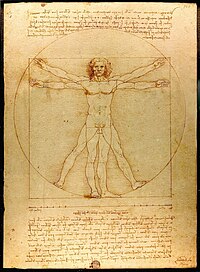
Secular humanism is a philosophy, belief system or life stance that embraces human reason, logic, secular ethics, and philosophical naturalism while specifically rejecting religious dogma, supernaturalism, and superstition as the basis of morality and decision making.

Religious humanism or ethical humanism is an integration of nontheistic humanist ethical philosophy with congregational rites and community activity which center on human needs, interests, and abilities. Self-described religious humanists differ from secular humanists mainly in that they regard the nontheistic humanist life stance as a non-supernatural "religion" and organising using a congregational model.

Paul Kurtz was an American scientific skeptic and secular humanist. He has been called "the father of secular humanism". He was Professor Emeritus of Philosophy at the State University of New York at Buffalo, having previously also taught at Vassar, Trinity, and Union colleges, and the New School for Social Research.
Sherwin Theodore Wine, Hebrew name שמעון בן צבי, Shimon ben Tzvi, was an American rabbi and a founding figure of Humanistic Judaism, a movement that emphasizes Jewish culture and history as sources of Jewish identity rather than belief in any gods. He was originally ordained as a Reform rabbi but later founded the Birmingham Temple, the first congregation of Humanistic Judaism, in 1963.

Humanistic Judaism is a Jewish movement that offers a nontheistic alternative to contemporary branches of Judaism. It defines Judaism as the cultural and historical experience of the Jewish people rather than a religion, and encourages Jews who are humanistic and secular to celebrate their identity by participating in relevant holidays and rites of passage with inspirational ceremonies that go beyond traditional literature while still drawing upon it.

Humanists UK, known from 1967 until May 2017 as the British Humanist Association (BHA), is a charitable organisation which promotes secular humanism and aims to represent "people who seek to live good lives without religious or superstitious beliefs" in the United Kingdom by campaigning on issues relating to humanism, secularism, and human rights. It seeks to act as a representative body for non-religious people in the UK.

Barbara Smoker was a British humanist activist and freethought advocate. She was also President of the National Secular Society (1972–1996), Chair of the British Voluntary Euthanasia Society (1981–1985) and an Honorary Vice President of the Gay and Lesbian Humanist Association in the United Kingdom.

The Ethical movement is an ethical, educational, and religious movement established in 1877, by the academic Felix Adler (1851–1933). In effort to develop humanist codes of behavior, the Ethical movement emerged from the moral traditions of the secular societies of Europe and the secular society of the United States of the 19th century. In practice, the Ethical movement organized themselves as two types of organization: (i) a secular humanist movement and (ii) a moral movement, with a religious approach.
The Rationalist Society of Australia (RSA) promotes the interests of rationalists nationally in Australia. Originally formed as the Victorian Rationalist Association, the society originated in a meeting of freethinkers in the University of Melbourne in 1906. It is the operational arm of the rationalist movement in Australia.

The Humanist Institute is a training program for leaders within the humanist, and secular humanist movement.

Humanism is a philosophical stance that emphasizes the individual and social potential, and agency of human beings, whom it considers the starting point for serious moral and philosophical inquiry.

The Icelandic Ethical Humanist Association is a humanist lifestance organization in Iceland, that promotes secularism, offers celebrancy services and contributes to the spreading of humanism in Iceland and abroad. It is a member of the European Humanist Federation and Humanists International.
Humanism may refer to ethical philosophies such as

Humanism is an approach in study, philosophy, or practice that focuses on human values and concerns. Articles related to humanism include:
Articles related to philosophy of religion include:

In Belgium, organized secularism is the local associations and organizations which provide moral support for naturalist, atheist, agnostic, secular humanist, freethinking, Bright, or irreligious and non-confessional citizens. A person who subscribes to such entities or ideologies, or at least espouses an interest in "free inquiry" apart from religious traditions is described as a "secular" or "free-thinker".
Transcendental Humanism in philosophy considers humans as simultaneously the originator of meaning, and subject to a larger ultimate truth that exists beyond the human realm (transcendence). The philosophy suggests that the humanistic approach is guided by “accuracy, truth, discovery, and objectivity” that transcends or exists apart from subjectivity.

Transhumanist politics constitutes a group of political ideologies that generally express the belief in improving human individuals through science and technology. Specific topics include space migration, and cryogenic suspension. It is considered the opposing ideal to the concept of bioconservatisim, as Transhumanist politics argue for the use of all technology to enhance human individuals.









